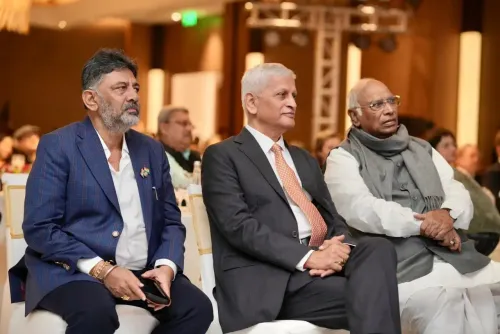Is the Election Commission Committed to Upholding the ‘Purity and Integrity’ of Electoral Rolls?

Synopsis
Key Takeaways
- Election Commission emphasizes its duty to maintain the integrity of electoral rolls.
- Aadhaar cards can verify identity but not citizenship.
- The ECI has complied with Supreme Court directives regarding Aadhaar.
- Only eligible citizens will be enrolled as per Article 326.
- Efforts are ongoing to exclude illegal entrants from the voting process.
New Delhi, Oct 9 (NationPress) As the Supreme Court prepares for a significant hearing on Thursday concerning petitions against the Special Intensive Revision (SIR) of the electoral rolls in Bihar, the Election Commission of India (ECI) has assured the court of its commitment to uphold the purity and integrity of the voters’ list.
“The Commission is aware of its obligations to maintain the purity and integrity of the electoral rolls, ensuring that only eligible individuals, as stipulated in Article 326—those who are 18 years or older, citizens of India, and meet the residency criteria—are registered,” stated the election body in a submitted affidavit.
This response came from the Deputy Election Commissioner following a request for a directive “to ensure that only Indian citizens influence the nation’s governance, excluding illegal entrants from Pakistan, Afghanistan, Rohingya, and Bangladesh.”
The ECI emphasized that while Aadhaar cards are acceptable as valid identity proof for electoral roll processes, they do not serve as proof of citizenship.
The election authority pointed out that it has adhered to the Supreme Court's directives from September 8, which authorized the ECI to recognize Aadhaar cards as the 12th identity document for electoral roll revisions.
“In line with these directives, the ECI issued instructions on 09.09.2025 to the Chief Electoral Officer in Bihar, stating that the Aadhaar Card will be regarded as the 12th document alongside 11 other recognized documents... and will be accepted for identity verification, but not as proof of citizenship,” the affidavit highlighted.
Referencing Section 9 of the Aadhaar Act, 2016, the ECI noted: “The Aadhaar number or its authentication does not confer any citizenship rights or serve as proof of citizenship or residency for the Aadhaar number holder.”
Additionally, the ECI cited a UIDAI Office Memorandum dated August 22, 2023, which reaffirmed that Aadhaar cannot validate citizenship, address, or date of birth.









